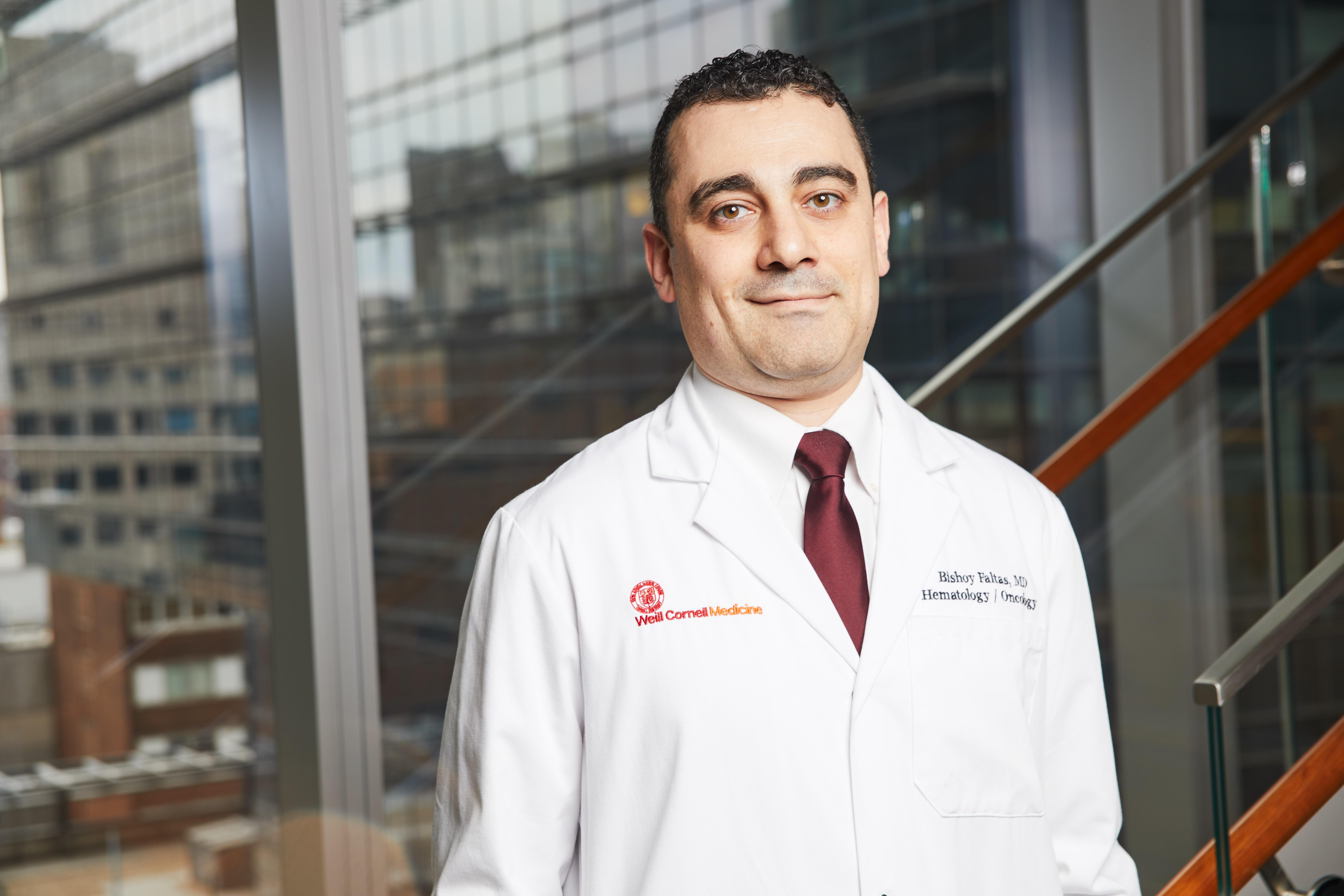
Research
The apolipoprotein B mRNA editing enzyme catalytic polypeptide-like 3 (APOBEC3) proteins are a group of seven cytidine deaminases (A3A, A3B, A3C, A3D, A3F, A3G, A3H). APOBEC3-induced deamination results in the conversion of cytidines (C) to uridines (U). The Faltas Lab has discovered that the APOBEC3-induced mutagenesis is clonally enriched in chemotherapy-treated urothelial carcinoma and that it shapes the tumor's evolution of throughout its lifetime (Faltas et al. Nature Genetics, 2016). The Faltas Lab is currently investigating the mechanisms in which APOBEC3-induced mutagenesis promotes genomic-instability and to ultimately drive tumorigenesis and chemotherapy-resistance in urothelial carcinoma. In addition to the mechanisms, the lab is exploring the consequences of genomic instability, diving deep into intra-tumor heterogeneity, the significance of extra-chromosomal DNA, and the evolution of drug-resistance and metastases. The lab is also looking to develop several new models of bladder including transgenic animal models and patient-derived (xenograft and organoid) models. Subsequently, the lab aims to apply these findings towards broad translational applications, hoping to revolutionize personalized therapy and drug development for UC patients.
Current Projects:
Understanding the role of extrachromosomal DNA in cancer evolution and drug resistance
Understanding the role of APOBEC3 cytidine deaminases in metastatic spread
Bi-digital twins for precision cancer therapy
Bio
Dr. Bishoy M. Faltas is a leading physician-scientist known for his significant contributions to understanding the molecular mechanisms of cancer evolution, particularly in urothelial carcinoma. Holding the Gellert Family-John P. Leonard, MD Research Scholar title, he directs Bladder Cancer Research at the Englander Institute for Precision Medicine and serves as Assistant Professor of Medicine at Weill Cornell Medicine.
The focus of the Faltas laboratory on the APOBEC3 family of mutagenic enzymes has led to innovative models of cancer evolution, aiming to inhibit these drivers of malignancy. His research, employing advanced experimental tools, strives to translate fundamental discoveries into clinical applications that enhance patient care. This is exemplified by his work on germline mutations, which has informed clinical testing guidelines, and his research on FGFR3 and cell-cycle alterations, propelling ongoing targeted therapy trials.
Recognized by the ASCO Young Investigator Award, the AACR NextGen Star Award, and the ASCI Young Physician-Scientist Award, Dr. Faltas has published extensively in high-impact journals. His research is funded by notable sources, including the NCI R37 MERIT award and the Department of Defense and multiple foundations reflecting the importance of his work. As a mentor, Dr. Faltas is committed to developing the next generation of physician-scientists. He also serves on editorial boards and grant review panels, contributing to the scientific community.
Dr. Faltas's dedication to elucidating cancer's underlying mechanisms aims to transform the treatment of bladder cancer and other cancers by developing intervention points to prevent the evolution of drug resistance and metastasis, fulfilling the mission of improving patient care through scientific discovery and education.
Distinctions:
- ASCO YIA (2015)
- NextGen Star Award by AACR (2017)
- Gellert Family-John P. Leonard, MD Research Scholar (2019)
- Young Physician-Scientist Award (YPSAs) (2023)
- R37 Merit Award from NCI by NIH (2023)
- YIA from SBUR (2023)
Selected Publications:
Faltas BM, Prandi D, Tagawa ST, Molina AM, Nanus DM, Sternberg C, Rosenberg J, Mosquera JM, Robinson B, Elemento O, Sboner A. (2016) Clonal Evolution of chemotherapy-resistant urothelial carcinoma
Liu W, Newhall KP, Khani F, Barlow LM, Nguyen D, Gu L, Eng K, Bhinder B, Uppal M, Récapet C, Sboner A, Ross SR, Elemento O, Chelico L, Faltas BM. (2023) The Cytidine Deaminase APOBEC3G Contributes to Cancer Mutagenesis and Clonal Evolution in Bladder Cancer
